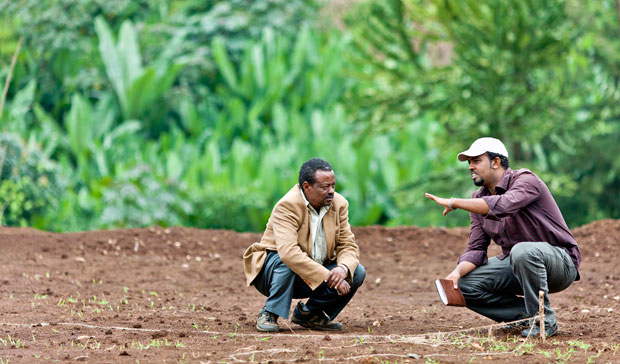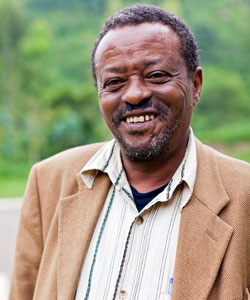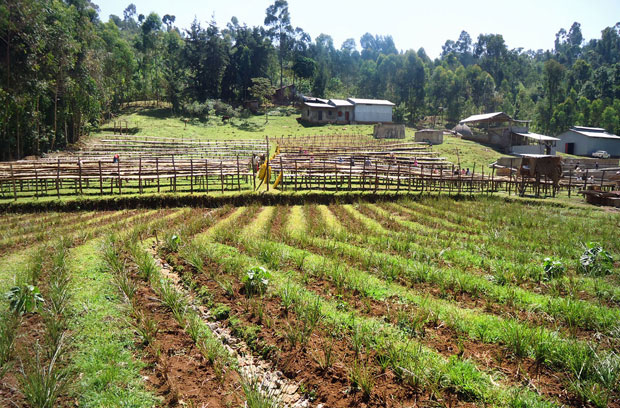A Sustainable Water Solution for Coffee Processing in Ethiopia
As TechnoServe prepares to celebrate World Water Day, we highlight a partnership in Ethiopia that is showing coffee wet mill owners a smarter method for treating wastewater and protecting their watershed.

Lensamo Lamiso’s coffee wet mill sits near the banks of the Kolla River in Ethiopia’s Sidama Zone. During the harvest season, the site bustles with activity as 150 seasonal workers process fresh coffee “cherries” from thousands of local farmers.
But this activity comes at a cost. Lensamo’s mill uses a large amount of water to process and wash the coffee beans. The huge water requirement also means the wet mill produces a large volume of wastewater. The effluent is unhealthy for the environment and must be treated or given space to evaporate.
 “We built a large lagoon to hold the wastewater, but it would flood or leak during peak processing times,” Lensamo said. “We couldn’t protect our river.”
“We built a large lagoon to hold the wastewater, but it would flood or leak during peak processing times,” Lensamo said. “We couldn’t protect our river.”
Some of the wastewater would return to the Kolla untreated, impacting the quality and safety of the water for those downstream. More than 20,000 people live nearby and rely on the river for their water needs. Lensamo, like other wet mill operators in the region, lacked the technical knowledge needed to build an adequate treatment system.
In partnership with Mother Parkers Tea & Coffee and its Brown Gold brand, TechnoServe is working with Lensamo and other wet mill operators along the Kolla River to implement a low-cost, sustainable approach to water treatment – vetiver grass wetlands. The vetiver grass’s deep roots suck up the water, slowing down flow and infiltration into the soil. The remaining effluent, if any, is stored in a small pond at the bottom of the wetland to evaporate.

TechnoServe aims to work with 17 wet mills in Sidama during a three-year period. The wet mill owners pay for the construction of the wetlands, while TechnoServe advisors provide the technical expertise and support. Other key partners involved in the project are the Sidama Coffee Farmers Cooperative Union and regional and local government institutions.
In designing the system, TechnoServe worked with local agricultural researchers to understand how vetiver has been used elsewhere in the world for treating organic waste, and then adapt it to coffee wet mills in Ethiopia. TechnoServe has helped install more than 40 such wetlands at wet mills throughout East Africa, but the partnership with Mother Parkers represents the first effort to target all wet mills along a single river system and thereby impact an entire watershed. Chemical tests will be taken during the harvest period to determine the impact of the wetlands on water quality.
The Sidama Zone, one of Ethiopia’s best-known coffee-growing areas, is home to more than 300 wet mills, most of which have not been upgraded to reduce water consumption or treat their waste. For many people in the area, coffee is the sole source of income, providing money for school fees and basic necessities. Better water treatment will not only improve water quality for families who depend on the river, it will promote a more sustainable and competitive coffee industry. TechnoServe and Mother Parkers hope the vetiver wetlands can become a model for the area, and eventually the entire country.
Learn more about Mother Parkers’ WaterWise Coffee initiative.



